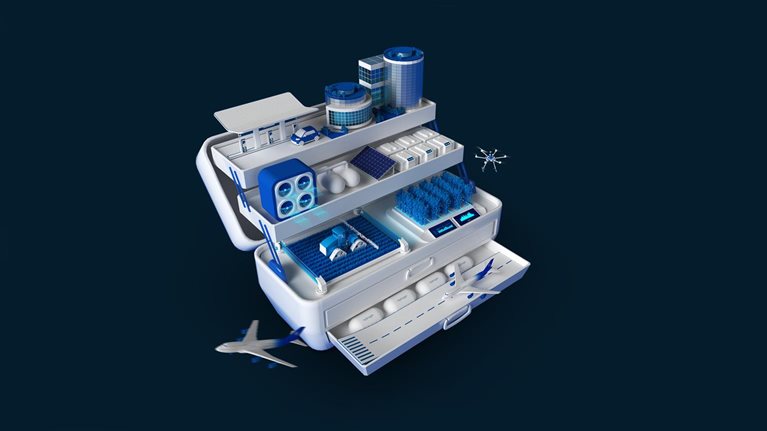The electricity sector now occupies center stage in the global efforts to reduce greenhouse-gas (GHG) emissions. Renewable energy sources such as wind and solar power are providing an increasing share of power generation while at the same time presenting certain challenges to widespread use.
In particular, the inherent variability of wind and solar power creates a need to balance supply and demand, for example, by using fossil fuel power to fill gaps. The search is on for a solution that will further reduce the need for fossil fuels, increase the impact of emission reduction efforts, and improve risk management for electricity purchasers. One answer that is gaining currency is “24/7 clean” power purchase agreements (PPAs), which seek to match supply and demand for renewable power more precisely than the PPAs that have dominated the market up to now.1
Power purchase agreements for 24/7 clean energy are the subject of a new report2 produced by the Long Duration Energy Storage (LDES) Council,3 with insights and analysis provided by McKinsey. According to the report, such agreements offer a significant improvement from today’s “pay as produced” PPAs, often coupled with reserve fossil fuel generation to fill the gap when the wind doesn’t blow or the sun doesn’t shine. The report estimates that these PPAs only achieve 40 to 70 percent decarbonization of an offtaker’s actual electricity consumption, while exposing offtakers to market price risks stemming from renewables variability (for which a large portion of offtakers are not well equipped).
By contrast, 24/7 clean PPAs measure electricity consumption and greenhouse-gas emissions in much smaller time units—for example, by the hour—and provide a form of time-matched clean power by using hybrid energy sources, such as a combination of renewable power and energy storage. They are thus a potentially attractive option for corporate power buyers seeking sharp reductions in their Scope 2 carbon emissions (from purchased electricity, heat, and steam) and offer the longer-term prospect of full-scale grid decarbonization. As part of the RE100 global corporate renewable energy initiative, for example, more than 300 companies across 175 markets have pledged to use 100 percent renewable electricity—24/7 clean PPAs could help them go even further (Exhibit 1).

According to the report, two factors are holding back wider adoption of 24/7 clean PPAs: relatively high costs and a lack of agreed-upon standards, but both of these obstacles can be overcome with a concerted industry effort.
Regarding cost, achieving 100 percent actual decarbonization with today’s storage technology is often perceived as prohibitively expensive, as the levelized cost of electricity from a wind, solar, and lithium-ion (Li-ion) hybrid system exceeds $200 per megawatt-hour (MWh) in most regions.
On the other hand, solutions based on novel energy storage technologies, such as long-duration energy storage (LDES), are expected to reduce the cost of fully firm renewable power to below $100 per MWh in the near future if deployment accelerates (Exhibit 2). Power purchase agreements for 24/7 clean energy are an essential nonregulatory tool to support this acceleration by enabling investments in clean, time-matched capacity that will drive down costs.

Action is needed to create agreed standards that can spur wider adoption. The report proposes development of a standardized quality assessment framework, allowing for different levels of ambition. This will establish a pathway to 24/7 clean PPAs with increasing levels of clean supply–demand matching (Exhibit 3).

“Entry level” 24/7 clean PPAs would have low entry barriers and would cost in the range of today’s average power market prices in many regions (around $70 per MWh). At the other end of the scale, “Platinum” PPAs represent the highest ambition level (approaching 100 percent clean supply–demand matching) and are designed for decarbonization leaders. The cost levels of those high-quality 24/7 clean PPAs are expected to decline by 30 to 40 percent over the next ten years as technology matures and scale increases, closing the gap to market prices.
The report’s key recommendation is that 24/7 clean PPAs would benefit from being officially certified by an independent organization based on up-front validation of contract terms, proposed sizing of the designated assets, and a process of continuous review. This would allow fine-tuning of the system to optimize CO2 impact and cost, based on hourly tracking of demand and supply.
Further steps to boost wider corporate adoption of this type of contract could include incorporating 24/7 clean PPAs in carbon accounting standards; development of a transparent data ecosystem; and measures to lower barriers to entry for smaller and less sophisticated corporate players, including innovative business models that enable asset sharing and the involvement of intermediaries.
While there are many obstacles to overcome, this is an entirely feasible task, and the prize of effective power decarbonization is well worth the effort.
Download the full report, A path towards full grid decarbonization with 24/7 clean Power Purchase Agreements.


